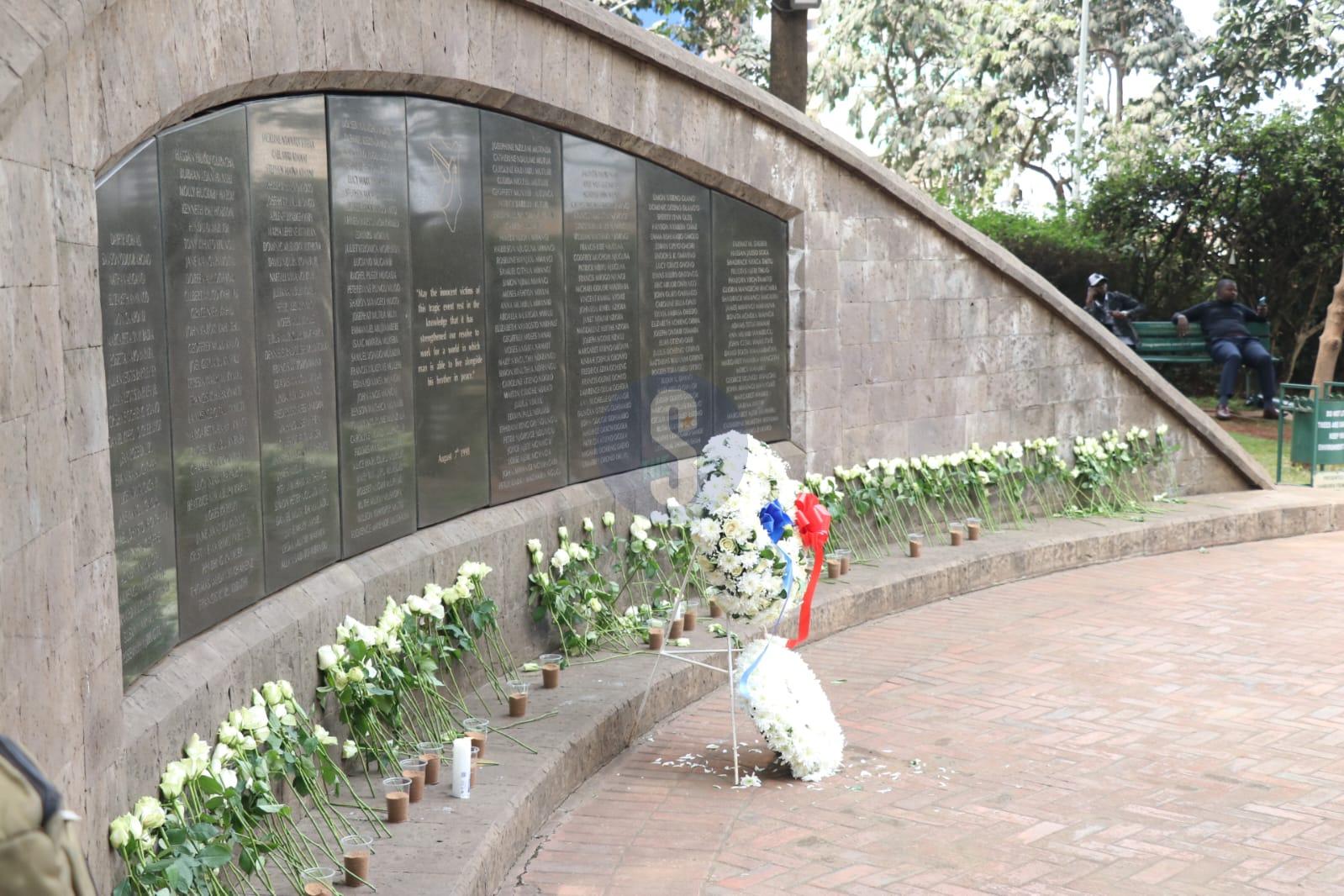
U.S. Marine Justin Geinert shared an emotional account of the harrowing
scenes he witnessed during the bombing of the United States Embassy in Nairobi
in 1998.
Speaking publicly about the tragedy, Geinert struggled to hold back his
emotions as he described the immediate aftermath.
He was narrating the encounter on August 7 at the Memorial Park in
Nairobi.
“On August 7, I was in Bahrain. My unit had just deployed, and we had
been there for five days. It was my first appointment with the Marines since I
was fresh out of secondary school,” Geinert began.
The U.S. Marine, who said he was very young then—barely 19—had just been
allowed off base when they started seeing the news.
Having no cell phones back then, Geinert and his fellow Marines headed
off so they could try to get hold of everybody.
“We got back to the base and started loading up our gear so as to get to
the airport. Due to flight issues, we ended up leaving the next morning,” he
said.
Geinert said that while he would never compare himself to any of the
actual victims and survivors, it was hard for him to fall asleep that night
since they did not know what to expect.
“When we finally arrived, our biggest concern was what we were going to
find, since nobody had an idea,” he said, adding that he had never left the
United States of America.
The U.S. Marine said the team needed to get to the embassy to secure the
area and protect the premises.
Upon arrival, Geinert and the team had expected to land at the airport
with armored vehicles and gun trucks waiting to ferry them.
“There was a yellow school bus waiting for us,” he said amid light
chuckles.
“It’s hard to look tactical while arriving at a scene in a yellow school
bus, but we made it work.”
Geinert explained that nothing could have prepared them for what they saw
upon arrival.
They ensured the place was secured, and after working through the night,
everybody was exhausted as the situation was tragic.
“The building had collapsed, and even though the embassy was still
standing, the whole of one side was down. We knew there were potentially people
in the U.S. embassy, and we needed to get through, clear everything, and find
what we could so that we could make way for the search and rescue operations to
continue,” he said.
He added that upon their arrival, the search and rescue team had not
shown up yet, so they needed to set up tents.
The sun was setting then, and they needed to check the embassy to clear everything.
The U.S. Marine said they were using flashlights to clear the area, and
he could see blood streaking along the stair walls.
“I did not know any of the victims, but that was very hard to see. Going
through the office spaces and seeing parts of people left was very tough,” he
narrated.
Having no place to sleep that night, Geinert said they laid their mats in
the ambassador’s office, which had the most room.
He, however, said the office still had broken glass, and they also took
shifts to provide security around the area.
“It took a full month to fully decommission the embassy and move over to
the USAID building that was in Parklands. I am sure some of you remember the
smell of diesel fuel as it leaked through the basement,” he said.
“I still can’t eat food if I smell diesel fuel in the area. That was
tough,” Geinert added while pausing to collect himself.
The U.S. Marine continued, saying their main purpose was to secure the
area while the search and rescue teams did their work.
Geinert’s testimony serves as a reminder of the scale of the tragedy and
its lasting impact on survivors, families, and first responders.
While the physical scars on the city have faded over time, he stressed
that the emotional wounds remain.
“Those images don’t leave you. You carry them with you,” he said.
His recollections came as Kenyans and Americans alike continue to honour
the victims and reflect on the events from that day.
He further said it was after spending some time in Kenya that he fell in
love with the people, and it is why he thought of coming back.
“You have brought your country further and continue to make it better,
which is why I really wanted to come back. I can never forget the kindness we
were shown while we were around, and I truly appreciate it now,” he said.












